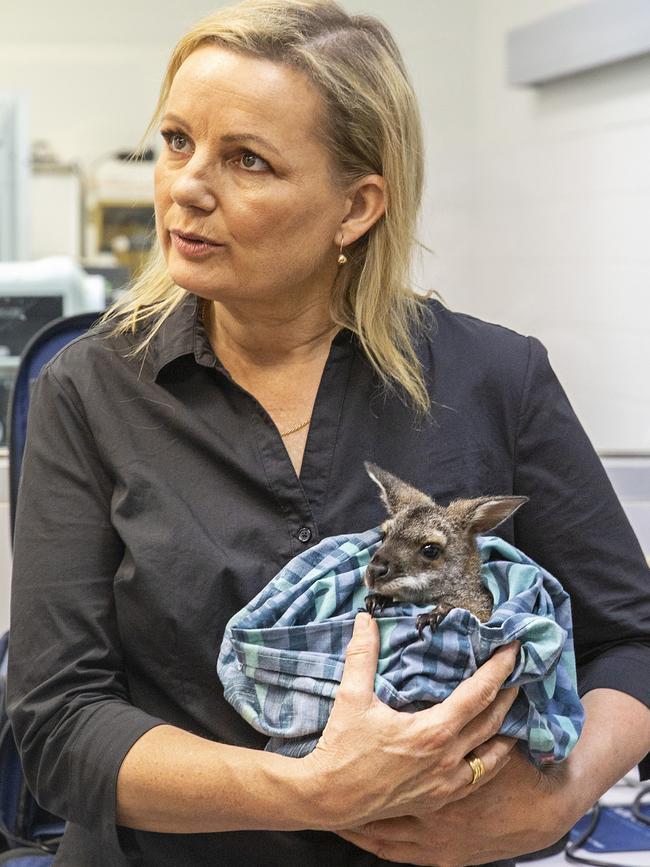WIRES’ boss: ‘Volunteers have never experienced a crisis of this scale’
A volunteer wildlife rescuer has called on the Federal Government to shoulder some of the financial burden of caring for our precious wildlife during this unprecedented bushfire season.

The Blue Mountains News
Don't miss out on the headlines from The Blue Mountains News. Followed categories will be added to My News.
- Major supermarket set for expansion
- Bride vows to back bushfire-hit wedding venue
- Gospers Mountain fire causes asbestos and drinking water concerns
Blue Mountains wildlife rescuer and carer Tracy Burgess is calling on the Federal Government to shoulder some of the financial burden of retrieving, feeding and nursing hurt and sick animals back to health.
The NSW bushfires have reportedly affected 800 million animals, under conservative efforts, resulting in an unprecedented demand on wildlife volunteers.
‘‘Volunteers have never experienced a crisis of this scale, but they remain committed,’’ WIRES’ chief executive Leanne Taylor said.
A spokesman said: ‘‘We’re desperate for volunteers — who must complete WIRES’ Rescue and Immediate Care Course — but it’s a catch-22; our trainers are overwhelmed rescuing animals.’’
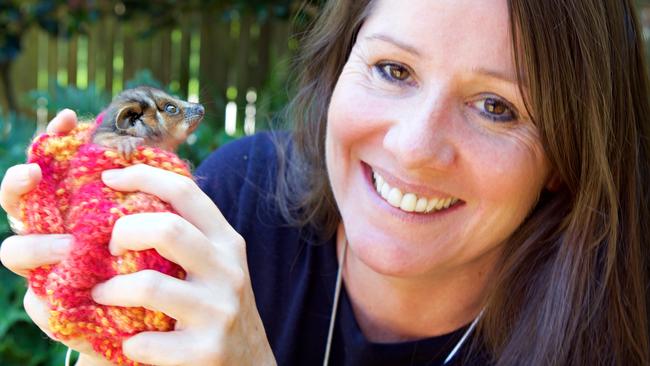
Ms Burgess is one of only about 70 active WIRES volunteers in the Blue Mountains, but she receives no help with upfront costs and ongoing expenses like food and petrol.
‘‘The government doesn’t even pay for our vaccines,’’ said Ms Burgess, who has completed a specialist course to rescue and care for flying foxes which are known to carry the bat lyssavirus and rabies virus.
‘‘At one point I had eight flying foxes in care and it was costing me $200 a week just in fruit. “A cage costs about $400 and I’ve bought seven in 12 months.
‘‘Thankfully the (WIRES) branch covers the cost of the medicines and vet bills.’’
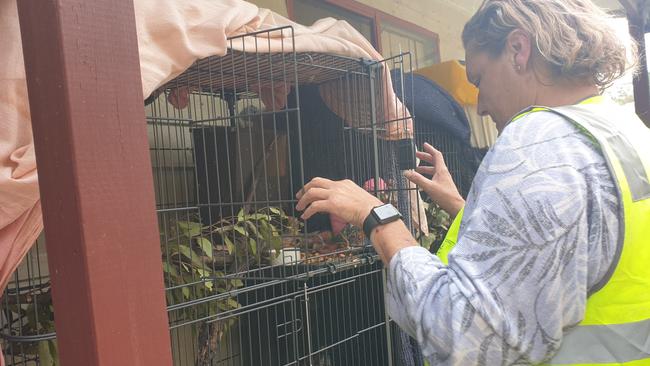
The comments come as Kylie Greenan from Blue Mountains Bushfire Wildlife Volunteer Group launches an online fundraiser to help buy fuel vouchers for its volunteers.
‘‘One thing I’ve heard several times is how much we are all spending on petrol,’’ Ms Greenan posted on Facebook.
Ms Burgess of North Katoomba said it isn’t fair donations of $2 and over to WIRES and other charities are tax-deductible.
She had to pay for three tanks of petrol she used rescuing wildlife, including a possum spotted 20 metres up a burnt tree in an active fire area.
‘‘She had been up there three days after the fires and hadn't moved. They (witnesses) thought she was dead. On the fourth day she went and sat on their front door.
‘‘She had a pinkie (baby possum) in the pouch ... all four paws were black and half her ears were burnt off.’’
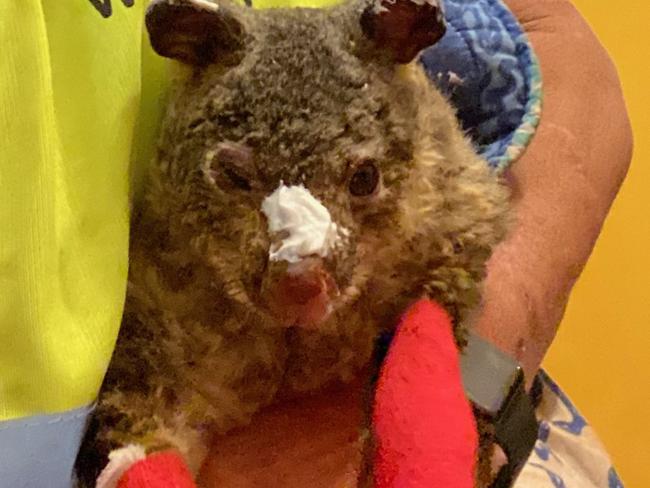
Across NSW there are 2500 WIRES volunteers working round the clock to ensure as many native animals as possible receive the ongoing care, supplementary food and recovery they need, including koalas, kangaroos, wallabies, birds and reptiles. Sometimes they even put their own personal safety at risk.
‘‘RFS escorted me into an active fire in the Kedumba River Crossing campground to rescue a juvenile wombat just before Christmas,’’ Ms Burgess said.
‘‘A tree branch has fallen and fractured her snout and jaw. We don't know where her mother is but she’s healing. She’ll survive.’’
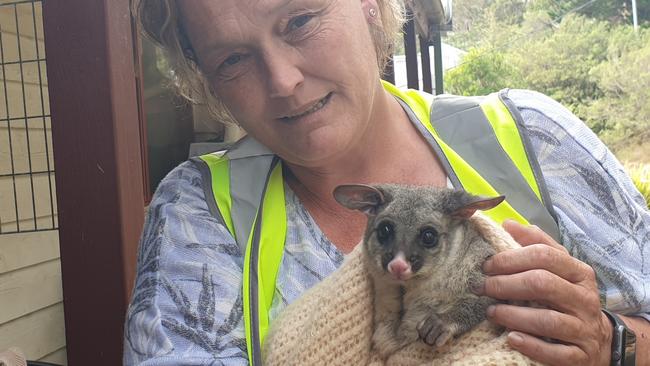
A spokesman for the Department of the Environment and Energy told The Blue Mountains News the Federal Government has committed $50 million in initial funding for wildlife and habitat recovery.
Of that, $25 million will be made available to support wildlife rescue, zoos, Natural Resource Management groups, Greening Australia and Conservation Volunteers Australia on the ground.
“Wildlife carers, such as those working through WIRES, should apply for costs directly through the organisation,” he said, adding “We have spoken with WIRES who inform us they have communicated this process to its carers.”
